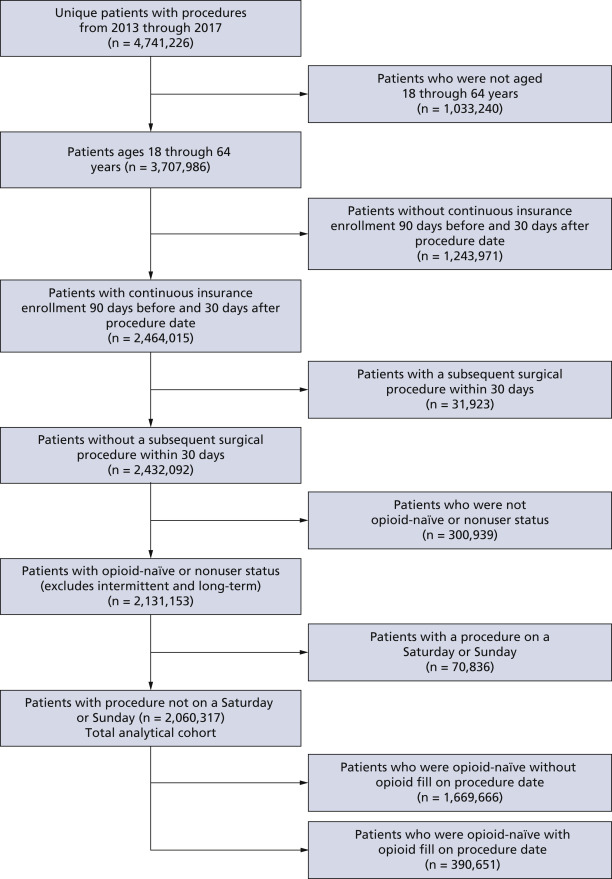To view the full text, please login as a subscribed user or purchase a subscription.
Click here to view the full text on ScienceDirect.
Abstract
Background
Excess opioid prescriptions place patients and communities at risk of experiencing opioid-related morbidity. The authors designed a study to test the hypothesis that opioid prescription fills would be more common after dental procedures performed the day before a weekend or holiday than other weekdays.
Methods
The authors performed a retrospective cohort study of 2,060,317 people, integrating Truven Health MarketScan insurance claims to evaluate variation in opioid fills for dental procedures performed the day before a weekend or holiday compared with other weekdays. Opioid-naïve people, aged 13 through 64 years, with eligible procedures from 2013 through 2017 were included. The primary outcome measure was a prescription opioid fill on the same date as the dental procedure.
Results
Multivariable logistic regression results showed significantly higher odds of filling an opioid prescription for patients with procedures the day before weekends and holidays (adjusted odds ratio, 1.27; 95% confidence interval, 1.26 to 1.28) than for patients with procedures on other weekdays. In addition, the youngest age category, 13 through 29 years, had the highest odds of filling an opioid prescription compared with other age categories (reference category: patients aged 50-64 years, adjusted odds ratio, 1.43; 95% confidence interval, 1.41 to 1.44).
Conclusions
Outpatient dental procedures performed the day before a weekend or holiday were associated with a 27% increased adjusted odds of filling a prescription for an opioid.
Practical Implications
Although patients and dentists might be concerned about the challenges of unmanaged pain on weekends and holidays, opioids are not warranted for most dental procedures and should be replaced with patient education and nonopioid analgesics. Oral health care professionals concerned about postprocedural pain control should consider scheduling complex procedures earlier in the week, when emergency care is available to reduce unwarranted preemptive prescribing of opioids, which might be driving increased opioid fills before weekends and holidays.


